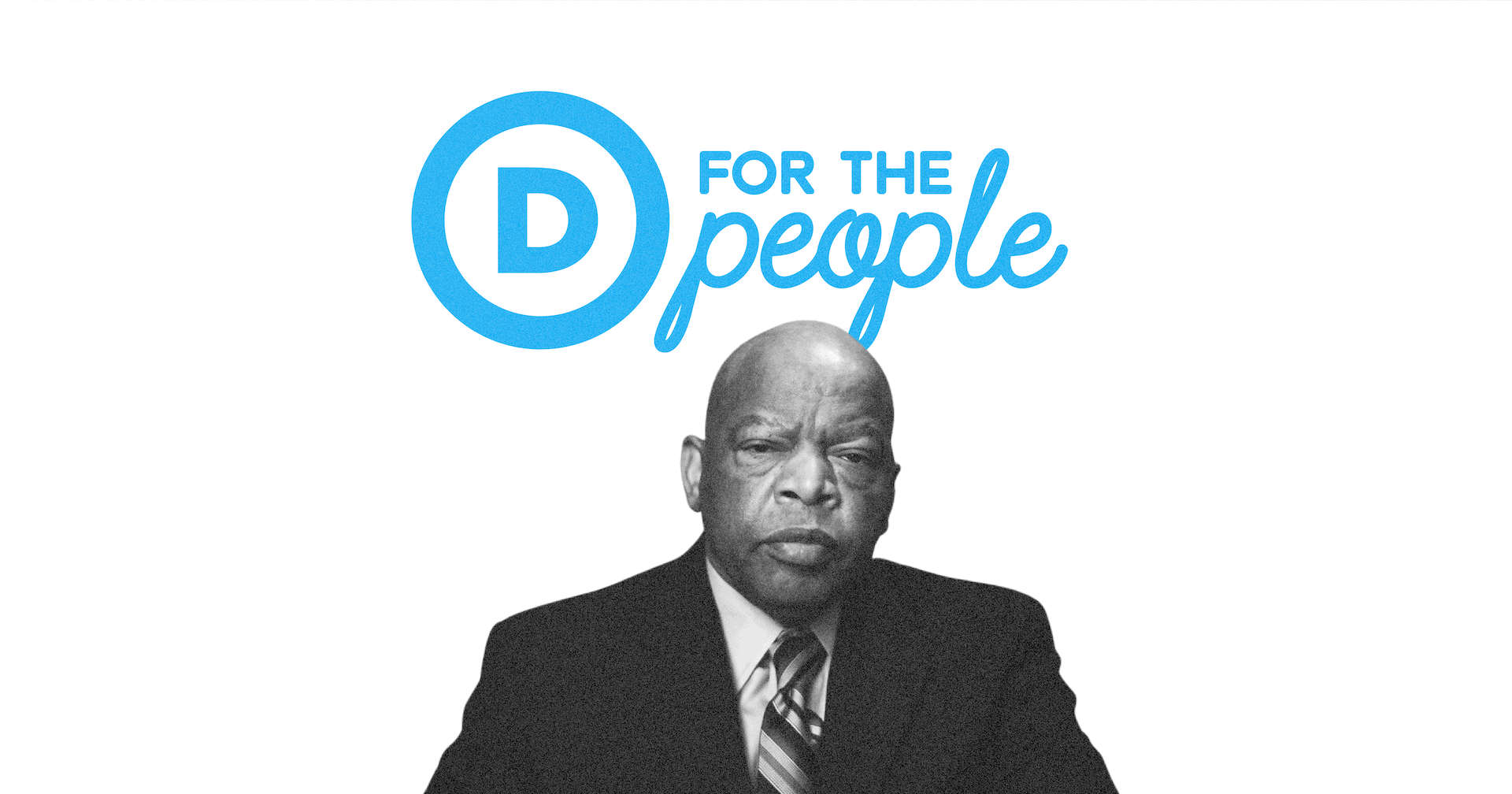By leaving the state and breaking quorum, Texas Democrats have halted the GOP’s assault on voting rights, for now. However, this is merely a delaying tactic. In order to completely halt voter suppression, federal legislation will be needed. Texas Democratic lawmakers are not just in DC to buy time, they are also lobbying Congress to pass key voting rights bills.
The two bills Democrats are pushing for are HR 1, also known as the For the People Act, and the John Lewis Voting Rights Act. The For the People Act is the more ambitious (and controversial) of the two. It would mandate that states establish online, automatic and same day voter registration, all things that Texas either lacks or only offers in a limited form. Voter ID requirements would be done away with and voters without ID would be allowed to vote if they signed a sworn written statement. The bill also includes election security and campaign finance reforms, such as mandating paper ballots and requiring that “dark money” groups disclose donors.
Perhaps the biggest change in the For the People Act is the creation of an independent, bipartisan commission to handle all congressional redistricting. The commission would be composed of five Democrats, five Republicans and five Independents or members of smaller parties. A number of states have already created similar redistricting commissions, but other states (including Texas) have state legislatures draw the maps. When the districts are drawn by partisan politicians, the unsurprising result is partisan gerrymandering.
The John Lewis Voting Rights Act might not be quite as sweeping as the For the People Act but it would still be a major step forward. The centerpiece of the bill, named after the late civil rights activist and congressman who almost gave his life for voting rights, is the restoration of something called preclearance. Previously, the Voting Rights Act of 1965 required that states with a history of voter suppression (including Texas) get approval from the federal government before changing their election laws. However, the preclearance provision was struck down by the Supreme Court in the 2013 Shelby v. Holder decision due to objections over its formula. The Supreme Court argued that states were being subjected to preclearance based on old data and that there was no evidence that these states in question continued to engage in racist voter suppression (of course, many did so immediately after preclearance was struck down).
The John Lewis Act would restore preclearance under a new coverage formula to get around the Supreme Court’s objections. This formula would be based on the past 25 years, and the 25-year period would continuously move up over time. If a state could establish a clean record for 10 years, they would no longer be subjected to preclearance.
The For the People Act is unlikely to pass in the Senate, where Senator Joe Manchin (D-West Virginia) has stated his opposition to the bill. As the Senate is currently split 50-50, with Vice President Kamala Harris casting the deciding vote in the event of a tie, the Democrats cannot afford a single defection. However, Manchin has expressed support for the John Lewis Act, as has one Senate Republican.
Manchin has also proposed his own compromise on voting rights. His plan includes the restored preclearance requirement from the John Lewis Act, although some of the provisions are somewhat weaker than the original bill. In order to get some Republicans on board, Manchin’s compromise includes a national voter ID requirement. However, alternative forms of ID, such as a utility bill with the voters name and address, would be acceptable.
A number of voting rights activists, most notably Stacey Abrams, have backed Manchin’s compromise. Beto O’Rourke has called the proposal a “good start” although he believes it does not go far enough. At least one of the Texas legislators currently in DC has expressed some openness to the plan. “I’m not in the middle of Senate politics, but my understanding is that if we could get that passed, that would be significant relief and help for Americans and for democracy,” state Rep. Gina Hinojosa told the Signal. “My recollection of the voter ID law is that what he proposes is much less restrictive than what we’ve got in Texas.” Hinojosa did say that it had been a while since she looked at Manchin’s proposal.
While Manchin’s plan may have a lot of Democrats on board, Mitch McConnell was quick to pour cold water on it. Manchin’s compromise, or any other voting rights bill, would thus have to get 10 Republican senators to go against McConnell to get past the filibuster (this is quite unlikely).
Eliminating the filibuster, or carving out an exception for voting rights, is something that Manchin has repeatedly refused to do (fellow conservative Democrat Sen. Kyrsten Sinema has also opposed ending the filibuster). Texas Democrats have met with Manchin to talk about voting rights, although they say that the filibuster was not discussed. However, given the low probability of a voting rights bill gaining enough Republican votes to pass the 60-vote threshold, the filibuster seems to be an elephant in the room that Texas Democrats will have to address at some point.
William serves as the Washington Correspondent for the Texas Signal, where he primarily writes about Congress and other federal issues that affect Texas. A graduate of Colorado College, William has worked on Democratic campaigns in Texas, Colorado, and North Carolina. He is an internet meme expert.





